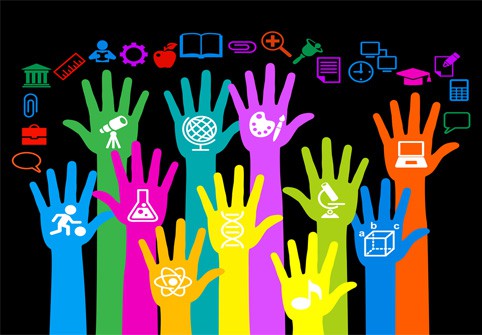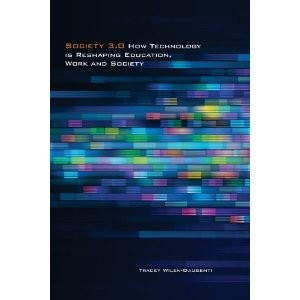10 Findings That Will Shape Students Today for the Workforce Tomorrow

 “Tomorrow’s Evolving Workplace” is from the upcoming book Society 3.0: How Technology Is Reshaping Education, Work, and Society, by Dr. Tracey Wilen-Daugenti (Lang, January 2012).
“Tomorrow’s Evolving Workplace” is from the upcoming book Society 3.0: How Technology Is Reshaping Education, Work, and Society, by Dr. Tracey Wilen-Daugenti (Lang, January 2012).
In the worst economy since the Great Depression, Californians are struggling to earn a living, get an education, and raise a family. How will we adapt to learn, work, and connect in the future? A new book with findings from Apollo Research Institute describes how businesses and workers will compete for jobs and opportunities in a global, technology-driven marketplace.
Below are just some of the findings:
The nature of work and careers has fundamentally shifted.
- Holding a single career until retirement has given way to taking a series of jobs with multiple employers over a lifetime.
- Instant communications and greater numbers of qualified overseas workers mean that U.S. employees must compete for skilled positions in a global labor market.
- To remain employable today and into the future, workers will need to develop higher-order thinking skills, embrace emerging technology, and become lifelong learners.
Globalization now affects all workers and businesses.
- Cultural competence will become a prime leadership trait for team leaders of international workgroups as U.S. businesses expand their foreign operations.
- Teleconferences, virtual teams, and other technology-based collaboration tools improve efficiency and lower costs, but developing trust in these new environments will remain an ongoing challenge.
- Significant disparities exist between the skills workers offer and those that employers require, raising the risk that U.S. companies will lose business to foreign competitors with better-educated workforces.
Small businesses and independent workers drive U.S. economic activity.
- America’s smallest firms and startup ventures create the most jobs during recessions, provide half the nation’s nonfarm GDP, and have provided many of its technology success stories.
- Higher education fuels the entrepreneurial mindset: 95% of surveyed company founders held bachelor’s degrees, and just under half held master’s degrees.
- Women-owned businesses generate 16% of the employment in America across a wide spectrum of industries, and women’s growing achievements in higher education could help jump-start the economy in the years ahead.
- Self-employment is becoming more popular—even during the recent downturn—as Baby Boomers choose freelancing or solo ventures over traditional retirement.
In Society 3.0, Dr. Wilen-Daugenti illustrates how workers have prepared for these realities by keeping their skill sets competitive or exploring independent careers. It will help your readers, as well as employers, educators, and policymakers, understand how new relationships with employers and the global economy can bring opportunities that foster innovation, competitive advantage, and work/life balance.






0 Comments
Leave a Comment
Your email address will not be published. All fields are required.